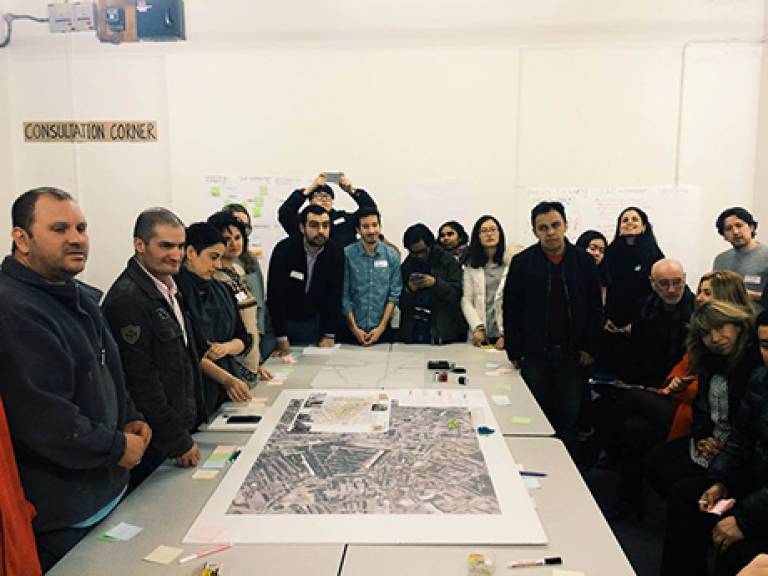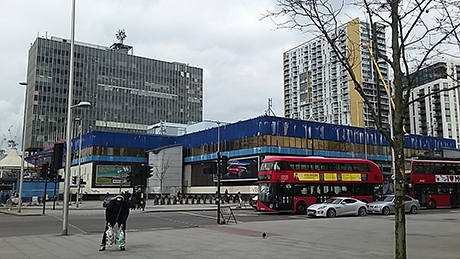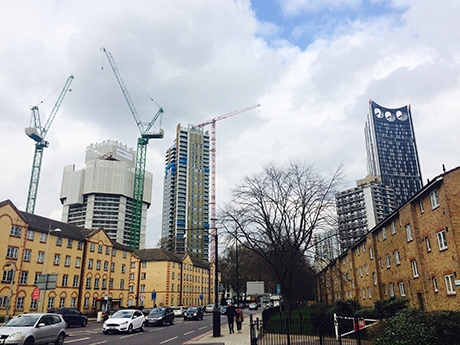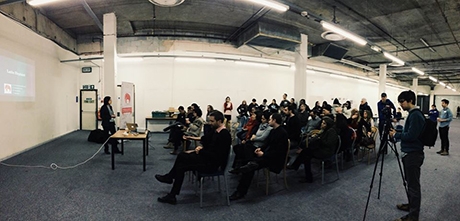What is the future of migrant ethnic businesses in Elephant and Castle regeneration process?
12 April 2016

Retaining the cultural diversity of ethnic minorities in regeneration strategies constitutes a key urban challenge for London and many cities nowadays. In particular, a diverse Latin American community has risen fourfold in the last decade, yet a systematic understanding of their role in regeneration processes remains to be understood. The Elephant and Castle Shopping Centre and its surroundings have been for decades a cultural hub for Latin Americans in London. Today, the area is facing a massive transformation process as a product of the Elephant and Castle Town Centre Regeneration plan, bringing increasing uncertainties to the retailers’ community. In this context and continuing with DPU’s engagement with London based local initiatives, a partnership with the charity Latin Elephant took place in order to support its mission of generating a platform of community exchange for Latin American traders and business owners. Thus, the support to Latin Elephant furthers UCL initiatives of liaising the voluntary sector and academia as means to promote social equity in London.

The MSc in Building and Urban Design MSc Building and Urban Design in Developmentand Development in its module ‘Participatory Processes: Building for development’ explored the socio-spatial impacts of regeneration projects in communities of the Latin-American Diaspora. The driving question posed in the module was: How participatory urban design can contribute to envision alternatives for preserving the cluster of migrant ethnic business in Elephant and Castle? Through a workshop held March 8th, in collaboration with the charity Latin Elephant and the support of representatives of the Southwark Council, students used participatory methodologies to work with more than 20 retailers of the area, who engaged in the workshop sharing their needs and aspirations, getting organised and discussing, and coming up with spatial alternatives for the future. In particular, the participants discussed relocations options and scenarios to return to the site once the regeneration project is completed. This valuable experience, led by Catalina Ortiz and Camila Cociña, provided the possibility to DPU students to directly engage with local organisations and put into practice their learning from their master programme in a concrete initiative.

Responding directly to an acute lack of minority ethnic voices (and specifically Latin American ones) on academic and policy debates about urban regeneration in London the resulting report and the upcoming joint activities seek to contribute to the on going consultation process of the regeneration process. The most salient results highlighted the need to organize a collective bargaining strategy to impact the consultation process for securing a fair relocation strategy that ensures retaining the economic cluster in conditions of affordability, visibility, accessibility and connectivity to the public transit in the area; as well as, the strong need to claim to the developers and the right to return once the Elephant and Castle Town Centre is completed as a way to protect current minorities’ cultural an economic assets. We will soon launch a video and a report with the experience. This project constitutes the departing point of a longer-term collaboration with the charity in exploring participatory urban design potentials to enhance the engagement of minority ethnic groups in the negotiation of regeneration schemes. Therefore, this type of initiatives strength DPU connected curriculum by increasing DPU students’ exposure to participatory practices of minority ethnic groups in urban regeneration strategies.

Read the report:
 Close
Close

